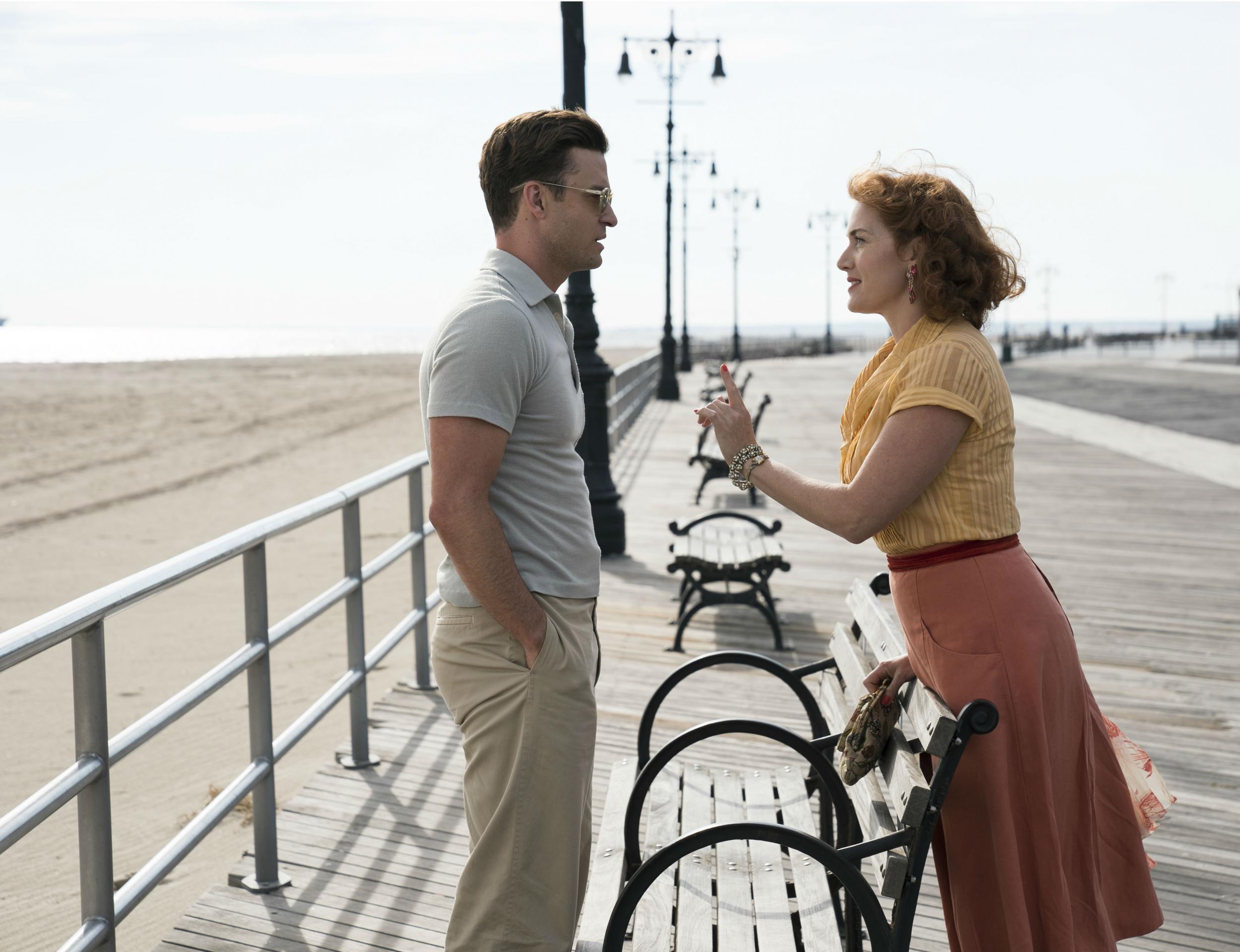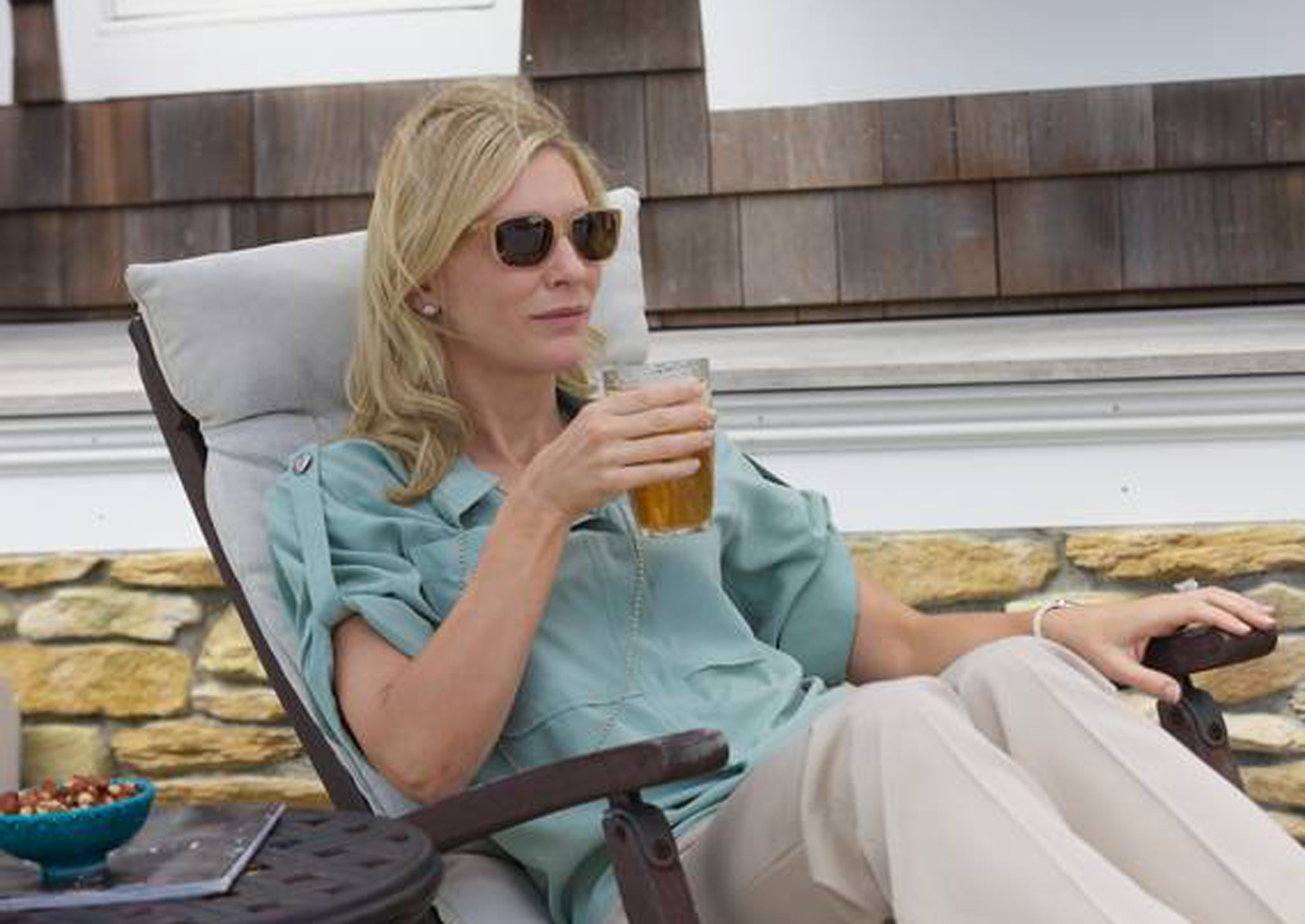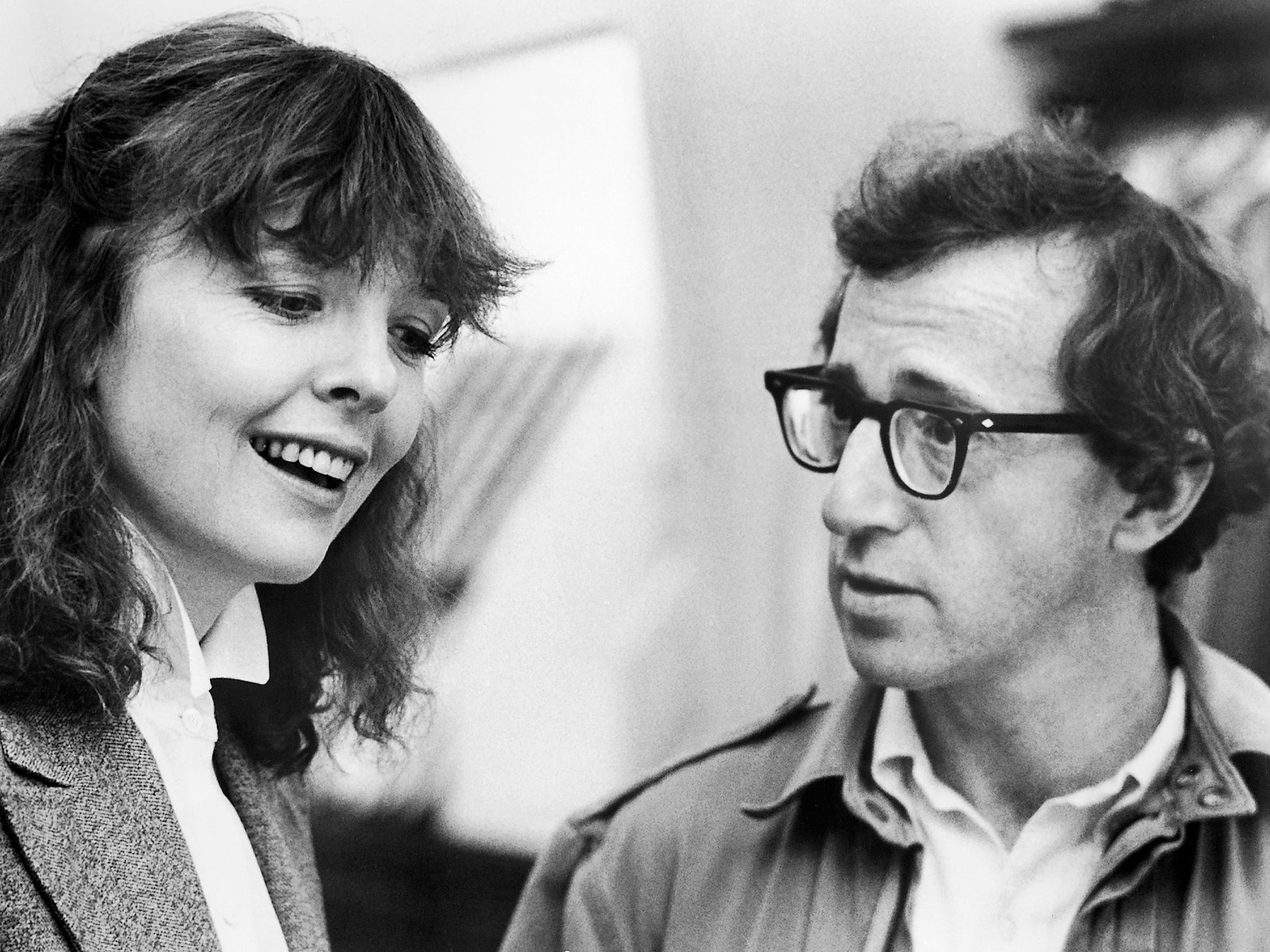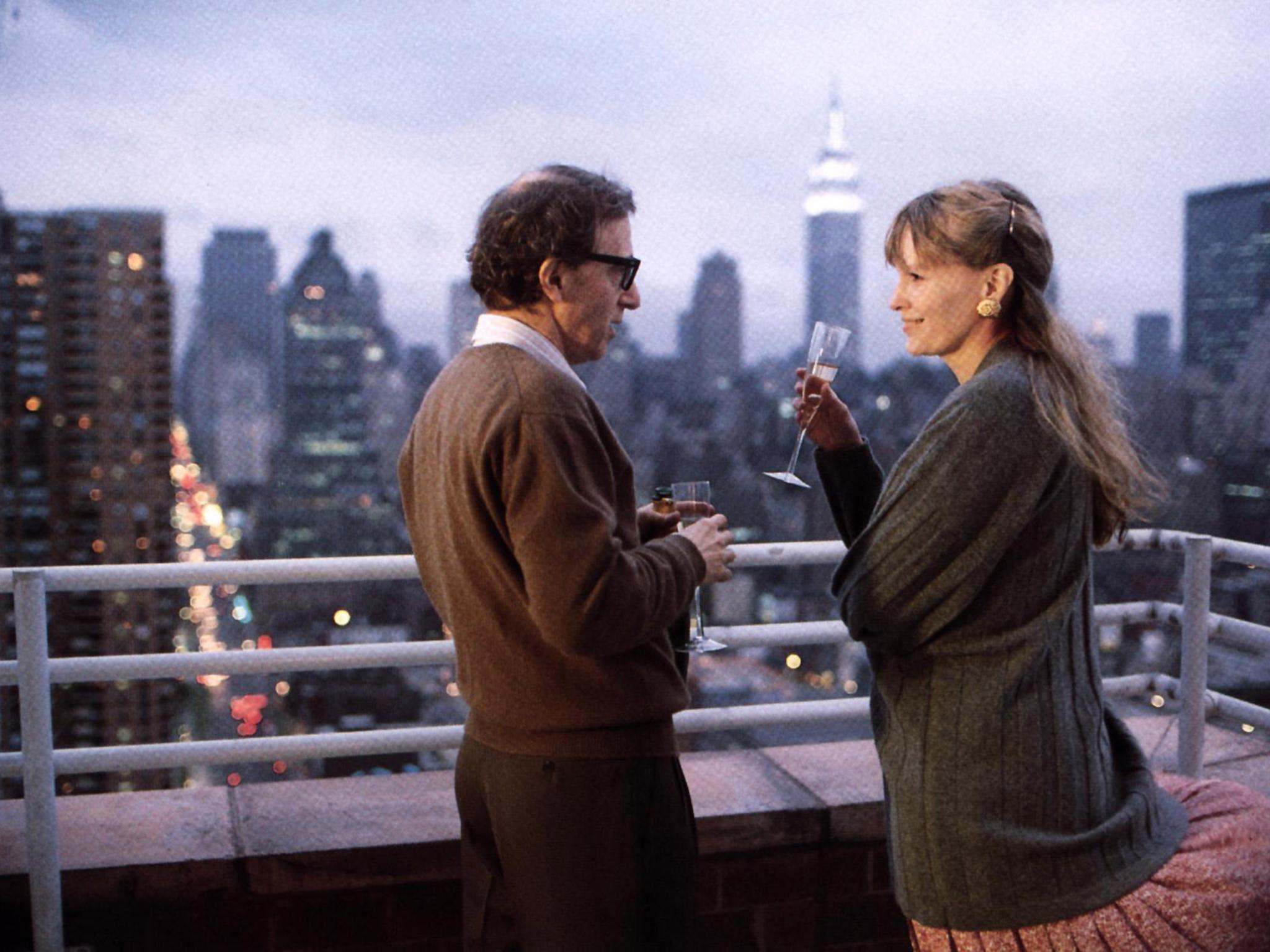Does 'Wonder Wheel' signal the end of Woody Allen?
Already dismissed critically and commercially in the US, 'Wonder Wheel' could be Allen’s last film to attract major stars, or get a major release, after allegations that he sexually abused his adopted daughter, Dylan Farrow
Woody Allen has never looked so beautiful. His 48th film as writer-director, Wonder Wheel shows off his most ravishing colour work to date. The play of orange-red light on its star Kate Winslet’s face as she reveals her feelings to a handsome lifeguard (Justin Timberlake) under the 1950s Coney Island boardwalk, the sea in soft focus behind her but her skin sharply alive, is mesmeric. So often functional visually, Allen, now in his ninth decade, has used his lavish new Amazon Studios contract to employ Apocalypse Now and Bertolucci cinematographer Vittorio Storaro on recent projects, including Wonder Wheel's predecessor Café Society, and the as yet unseen A Rainy Day in New York. For any other director, it would signal an exciting new phase in a prodigious career.
But the mood outside Wonder Wheel’s UK preview screening this week is bleak. The film seemed inseparable from the accusations of child sexual abuse made by Dylan Farrow, the daughter of Allen’s former partner Mia Farrow, and the mass condemnations of the #MeToo movement. No one spoke about the claustrophobia of Kate Winslet's Ginny and her “close living” with her family in a Coney Island “on the skids”, strikingly different from Allen’s nostalgia for the resort in Radio Days (1987), or the rarity of a modern film so rooted in the torrid dramas of Eugene O’Neill and Tennessee Williams. Nor did conversation pause on how Winslet finds the twitchy heart of a disintegrating, disappointed woman as surely as Cate Blanchett did when she won a deserved Oscar for Allen’s Blue Jasmine, four short years ago.
Two critics instead discussed their “queasiness” at Ginny’s accusation that her husband’s feelings for his teenage daughter are inappropriately intimate. Close followers of Allen’s canon could also have pointed them to his 2003 film Anything Else which contains the line: “You once told me that you thought your father was sexually attractive”. Proof of Allen the writer’s subconscious guilty conscience, or of nothing to hide? The jury seemed to be suddenly in.

“I think on some level Woody is a woman,” Winslet told the Sydney Morning Herald, still flushed by the pleasure of doing some of her very best work with him. “I just think he’s very in touch with that side of himself ... his female characters are always so rich and large and honest in terms of how they’re feeling.” To the New York Times, she’d talked of her “shock and panic” at the challenge of the script, Allen’s “fully engaged ... good” direction, and how her parents would be “incredibly proud of me working with Woody Allen”. As to Dylan Farrow’s accusations, she replied that, “I don’t know anything, really, and whether any of it is true or false. Having thought it all through, you put it to one side, and just work with the person. Woody Allen is an incredible director.”
That was the actress’s considered view back in September 2017, when Harvey Weinstein and Kevin Spacey were still powerful and respected, and a mix of overdue righteousness and desperate terror had yet to descend on Hollywood. But in December 2017, in the wake of Weinstein’s exposure – not least thanks to the investigative efforts of Dylan’s supportive brother, journalist Ronan Farrow, in The New Yorker – Dylan wrote a Los Angeles Times piece asking, “Why Has the #MeToo Movement Spared Woody Allen?” Far more powerfully, in January 2018 Dylan was interviewed on TV for the first time about her claim that Allen abused her aged seven.

Quickly, Winslet, while choosing not to name them, apologised for working with two directors, widely thought to be Allen and Roman Polanski. A flood of distancing or bitterly regretful statements have followed. Colin Firth, co-star with Emma Stone in another of Allen’s recent period pictures, the breezy Magic in the Moonlight, gravely announced, “I wouldn’t work with him again.” A “heartbroken” Greta Gerwig, Mira Sorvino and Ellen Page were among others who felt the same. It was mostly older actor friends such as Diane Keaton and Alec Baldwin who stayed loyal. Perhaps most damagingly for Allen, three stars of A Rainy Day in New York – Timotheé Chalamet, and Selena Gomez and Rebecca Hall – donated their fees, and strongly disowned his next film before it could even be released.
A view is growing that Wonder Wheel – already dismissed critically and commercially in the US – could be Allen’s last film to attract major stars, or get a major release. According to two anonymous sources who spoke to the New York Times, Amazon Studios is considering ending the relationship with Allen cemented by former boss Roy Price. To date the company has allowed Allen $80m for TV series Crisis In Six Scenes – his one recent certifiable failure – $20m for Café Society, and $25m for Wonder Wheel. The three Allen films left on his Amazon contract now hang in the balance.

There is a commercial logic to this. When Amazon wanted Allen, they were establishing themselves among the Hollywood studios, and had money to burn on Oscar-friendly names. Allen, too, was on an unexpected commercial hot streak, after the freak hit Midnight in Paris, which was joined by Blue Jasmine in making $100m. Since then, it has become clear that Amazon overpaid for a director whose US box-office was more often than not negligible after the release of Manhattan in 1979, and permanently damaged by moral outrage at the revelation of his relationship with another Farrow daughter, the then 21-year-old Soon-Yi Previn, in 1992.
And for all the sympathy lavished on abuse victims at this year’s Oscars, and the no doubt genuine sorrow for Dylan Farrow expressed by Allen’s old stars, Hollywood also views weakness as contagious. From Aids rumours around actors in the 1980s to the stigma of the smallest accusation of sexual impropriety now, the system would toss its mother overboard without a thought rather than risk contamination.

Watch Apple TV+ free for 7 day
New subscribers only. £9.99/mo. after free trial. Plan auto-renews until cancelled.
ADVERTISEMENT. If you sign up to this service we will earn commission. This revenue helps to fund journalism across The Independent.

Watch Apple TV+ free for 7 day
New subscribers only. £9.99/mo. after free trial. Plan auto-renews until cancelled.
ADVERTISEMENT. If you sign up to this service we will earn commission. This revenue helps to fund journalism across The Independent.

There's a moral element too. The impact of seeing Dylan Farrow speak has clearly been as grievous to Allen’s reputation as a change in cinema’s sexual climate. But, despite the recent outcry, it's worth noting that nothing has been added to Dylan’s accusations since 1992, which Winslet, for one, was clearly aware of when happily signing up for Wonder Wheel.
Nor has anything changed since the lengthy investigations of those accusations at the time they were made. In 1993, New York’s Department of Social Services stated: “No credible evidence was found that the child named in this report has been abused or mistreated”; the allegation was therefore “unfounded”. The Connecticut police-assigned Child Sexual Abuse Clinic of the Yale-New Haven Hospital separately concluded: “It is our expert opinion that Dylan was not sexually abused by Mr. Allen.” They went on to hypothesise that her memory of this might be the result of a “disturbed family”, or coaching by Mia Farrow. The latter theory has been supported by the memories of Dylan’s older brother, Moses Farrow.

It is also worth remembering the febrile atmosphere as Allen’s relationship with the Farrow family fractured after his affair with Soon-Yi Previn, a mood caught by raw, dark emotions of Allen and Farrow’s last film together, Husbands and Wives, released to big US box-office as the news broke.
In Allen’s longest statement on a scandal which he has never wholly outrun and which, he told The Guardian in 2016, left him feeling “harassed” and “weaker”, he wrote in the New York Times that he had at first presumed “common sense” would prevail. The abuse allegation, it is often forgotten, happened during his bitter split and child custody battle with Mia Farrow. “I was a 56-year-old man who had never before (or after) been accused of child molestation ... Now, suddenly, when I had driven up to her house in Connecticut one afternoon to visit the kids for a few hours, when I would be on my raging adversary’s home turf, with half a dozen people present .. that I would pick this moment in time to embark on a career as a child molester should seem to the most sceptical mind highly unlikely.”
As Allen has been at pains to point out, his age gap with Soon-Yi is similar to that between Mia Farrow at 19 and her eventual husband Frank Sinatra, then 49 (as well, it could be added, as the romantic lives of Mick Jagger, national treasure David Jason and Brigitte Macron). And whatever it says about Allen that he should see nothing wrong in an affair with his girlfriend’s adopted daughter, Soon-Yi is now 47, and they have been by all accounts happily married for 20 years. They have surely earned the right to live as they wish.
As to Dylan’s memories, she clearly believes them, as Allen and Moses Farrow do theirs. As Rainy Day in New York star Cherry Jones, who has refused to denounce the film, told the New York Times: “There are those who are comfortable in their certainty. I am not. I don’t know the truth. When we condemn by instinct our democracy is on a slippery slope.”
None of us, from critics to Amazon Studios to Colin Firth, can know the truth for certain. Unlike the avalanche of accusations which buried Weinstein and Spacey, Dylan Farrow’s still stands alone. To meanwhile ignore the findings of two state investigations seems the result of feverish times, more than careful thought. It surely requires more to silence a unique voice which still speaks strongly in Wonder Wheel, even if few now want to hear, or to wipe life-affirming achievements from Annie Hall to Blue Jasmine from the world.
According to his loyal sister and producer, Letty Aronson, Allen’s next film has anyway been financed, even if Amazon quit him. Aged 82, and wounded, Woody works on.
‘Wonder Wheel’ is in cinemas from 9 March
Join our commenting forum
Join thought-provoking conversations, follow other Independent readers and see their replies
Comments